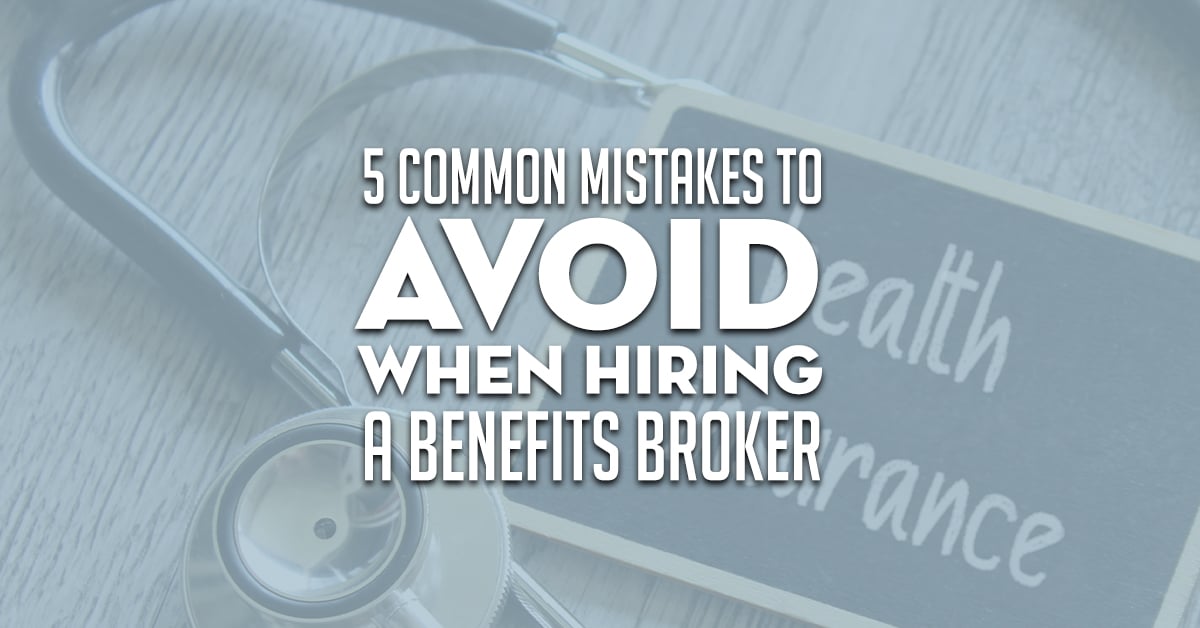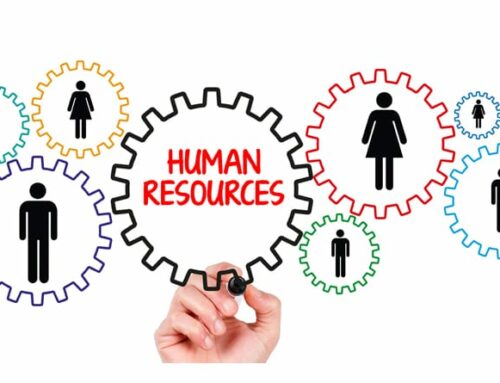5 Common Mistakes to Avoid When Hiring A Benefits Broker
As the owner of a small or medium-sized business, you might start to approach hiring a benefits broker the same way you would other vendors. For instance, you might look at the credentials of several brokers, meet up for interviews, choose the most qualified person, and move on.
However, this process has to be different. The choice of a benefits broker impacts a ton of things at your business. The stakes are high and it’s easy to make a mistake and end up with a broker who is a bad fit.
A benefits broker doesn’t only impact the financial well-being of your company. It can also have a huge impact on the health and welfare of your workers and their families. Whether a child needs cancer treatment, a grandparent needs a nursing home, or retirement is approaching, a good broker will work to ensure workers have all the support and coverage they need.
Finding and hiring a benefits broker is often a very complicated process. If you hire the wrong one, your small or mid-sized business could end up with low-quality benefits, lower return on investment (ROI), and waning employee engagement. This guide will give you information on mistakes to avoid while hiring a benefits broker.
1. Being Unaware of the Benefits Needs of Your Employees
The benefits broker you choose should have the service needed to meet the unique needs of your employees. However, you can’t do that if you aren’t sure what those needs actually are. There are numerous questions to ask yourself at this point:
- Medical, dental, and vision are mandatory for many employees, but what levels of coverage are going to provide the most value to your workers?
- Which types of ancillary benefits are going to best suit the needs of your employees?
- What type of benefits funding strategy are you moving toward? Is it the right one for your situation?
- What are the values of your company? How should your benefits support these things?
- How much of a budget do you have available to allocate for benefits?
Think about which perks can enhance the life of your team. This is a great way to boost workplace culture and morale. Sit down and consider which areas need work and what the broker can give you a hand with. If you aren’t sure what the employees desire from benefits, send out an employee survey to find out.
2. Making a Decision Largely Based on Cost
Everyone knows the saying – you get what you pay for. When you hire a broker based only on a lower price, this could cause issues in the future. Remember that a broker is an investment for your employees and the business as a whole. If you choose a benefits broker with experience and the right tools, this can save you in terms of your budget and time.
There’s something else you should know at this point. Every broker can access the same insurance plans for the same costs. The value is all about how they build their offerings and help to support your team. This is what matters the most.
The price tag matters but it isn’t the sole differentiator between benefits brokers. Look at all the value they bring to your employees. Consider everything before you make a decision. It can have lasting consequences and you want those to be positive, not negative.
3. Choosing Not to Vet the Candidate with HR Experts
When you want to choose the right broker, the human resources (HR) community can be a huge help. Brokers should have a tight connection with the HR teams of their clients. There’s not a single reason to choose a broker who doesn’t seamlessly support HR throughout the year.
Talk to the HR experts you know or look at virtual communities to get honest opinions. If there is a lot of negative talk about a certain brokerage, it might be best to choose a different one. This is just another way to make sure you’re making the right decision for your company.
4. Selecting Based on the Name or Size of the Brokerage
Big names and huge businesses may seem impressive. However, that doesn’t mean you need to choose based on these things. Sometimes, a small or medium-sized broker can give you a better experience than a huge one that you’ve heard of several times in the past.
A large brokerage often has a wider selection of services, but they may also be less responsive and more impersonal about your needs. Choosing a smaller brokerage may mean you get the most personalized approach.
You also need to consider that small and mid-sized businesses have different needs than large corporations. Make sure you select a partner that matches your needs. For a small business, this means someone who can make the most of a smaller budget and is proactive about providing you with needed support.
5. Deciding on a Brokerage with Old Processes and Tools
Historically, the brokerage world has not been the quickest to innovate. This means that some of the brokerages you consider may use inefficient and outdated tools. It’s important to find out if that’s the case since it could create problems as you move forward.
As you make this important decision, real-time accurate information is a priority. You want to choose a broker who is up to date on new tech. You also want them to be capable of helping you navigate benefits to save bandwidth, money, and time.
Final Thoughts
When you are searching for the right benefits broken for a small or mid-size business, make sure you do your research. You want to choose the person who gives you the most coverage and the best benefits for the money. Remember that this is a decision that affects your employees, who are your largest asset.
Regardless of the route you choose, it’s important to avoid bad broker behavior. Using the tips above will ensure you choose a great benefits broker and can easily implement benefits that your employees appreciate.



